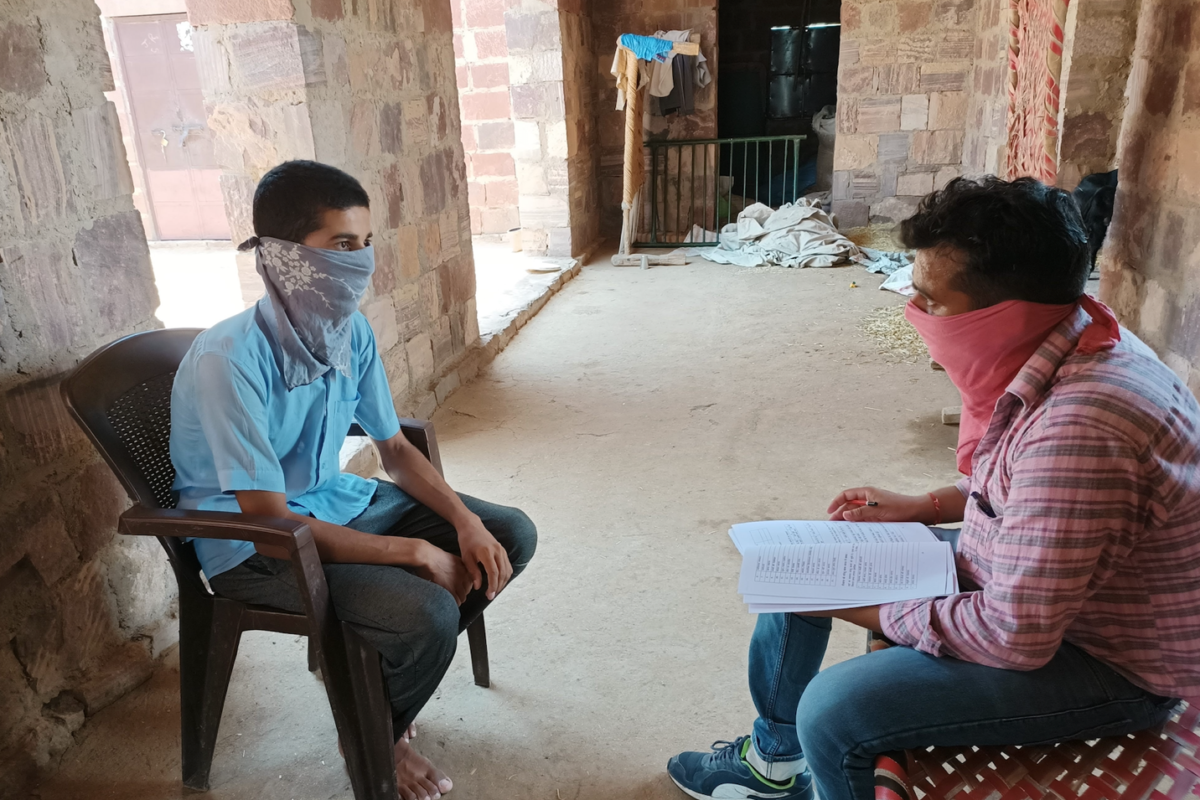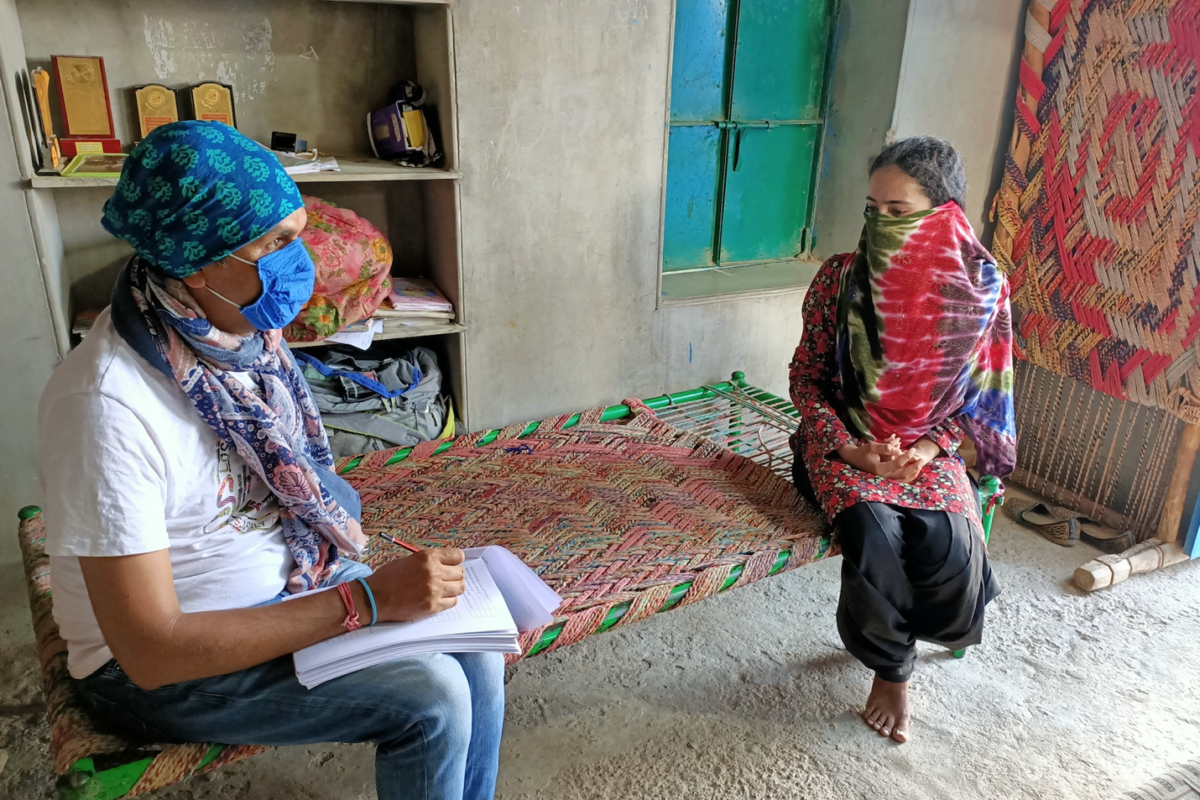Alleviating Time Poverty Among the Working Poor - Final Takeaways from 2019 Burke Fellow Ashley Whillans
2019 Burke Fellow, Ashley Whillans, PhD, MA an Assistant Professor of Business Administration, Negotiation, Organizations & Markets Unit at Harvard Business School, recently completed her fellowship in the Burke Global Health Fellowship program. We welcome you to read about her research project and experience below.
Ashley Whillans, September 2020
Becoming a Burke Fellow provided the platform for me to scale my research on alleviating “time poverty” among women living in developing markets. As a direct result of the funding associated with the Burke Fellowship, I completed my first large-scale field experiment on this topic with 1,200 financially constrained working mothers living in the largest informal settlement in East Africa (Kibera, Kenya).
In this experiment, my colleague and I randomly assigned women to one of three experimental conditions:
- Receiving an unconditional cash transfer—considered the “gold standard” of economic aid—once per week for three consecutive weeks, valued at 500 KSH ($5.00 USD). This is the equivalent of about one days’ worth of labor for the women we studied.
- Receiving a time-saving voucher for meals or laundry valued at 500 KSH that saved the women we studied about 5-10 hours of labor.
- Receiving small incentives for completing surveys, but no other reward.
In this study, women who received cash and women who received time showed improvements in self-reported happiness and relationship satisfaction during the study, as compared to women who were randomly assigned to the no-incentive control condition. Because cash is considered the “gold standard” of aid in developing markets, the fact that cash and time-saving aid both performed similarly on the key psychological outcomes we studied was striking. Another interesting finding that emerged from the study was that time not only performed similarly to cash—time had two additional and unexpected benefits:
- Women who received time saving vouchers and who worked more hours benefitted more than women who received cash and worked more hours. These results suggest that time-saving vouchers can be especially powerful for shaping the well-being of working women.
- Women who received time-saving vouchers also reported deriving greater satisfaction from leisure activities like relaxing, socializing, or spending time with their family over the course of the study.
For women in the cash and the control conditions, spending more time on leisure activities was associated with lower levels of subjective well-being. In contrast, for women in the time-saving condition, spending more time on leisure activities was associated with higher levels of well-being. Follow-up suggests that the time-saving vouchers “legitimized” leisure and allowed women to more fully realize the subjective well-being benefits of leisure activities. The results of this experiment are in press at the journal Nature Human Behavior.



Field Officers Collecting Baseline Data for Project in Rajasthan (August 2020)
I have now embarked on a research program in rural villages surrounding Rajasthan, India in collaboration with a Canadian non-profit organization OneProsper. As part of this project, we are building rainwater harvesting tanks so that girls and women in these villages do not have to spend 6-10 hours collecting water from their local well. We have randomly assigned 50 households to receive these rainwater collection tanks in this first year of the study, with another 50 households randomly assigned to receive a tank next year. We are tracking a number of measures, including the subjective well-being, physical health, economic success, school attendance, educational attainment, and gender stereotypes of each household member, before and after families receive the rainwater collection tanks.
As of August 2020, we have collected our baseline measures and we are building the collection tanks for the first 50 households in our study. It is our hope that these tanks will save girls and women time, enabling them to go to school, to work, and to experience improvements in their subjective well-being and stress levels. We are also exploring the extent to which their fathers and brothers’ beliefs about women’s roles change as a result of study participation. I am currently seeking out large-scale funding to compare the results of rainwater collection technologies against unconditional cash transfers at the village level. I hope to collect these data over the next several years.
Finally, thanks to the research I have conducted as a Burke Fellow, I am currently in the initial development stages of a new book with Harvard University Press on the symbolic value of time and time poverty building from the research that I have been doing in the field in the US, Kenya, and India. I am collaborating with a former Burke Fellow, on data collection related to research I have been conducting on creating measures of the economic value of time.
The Burke Global Health Fellowship is made possible by Harvard alumna Katherine States Burke, AB ’79, and her husband T. Robert Burke. This fellowship supports the global health research and training efforts of Harvard junior faculty and serves as a career catalyst, coming at a critical juncture in faculty’s academic development. A Burke Fellowship gives some of Harvard’s most impactful junior faculty the freedom to focus on important work that will transform global health.


